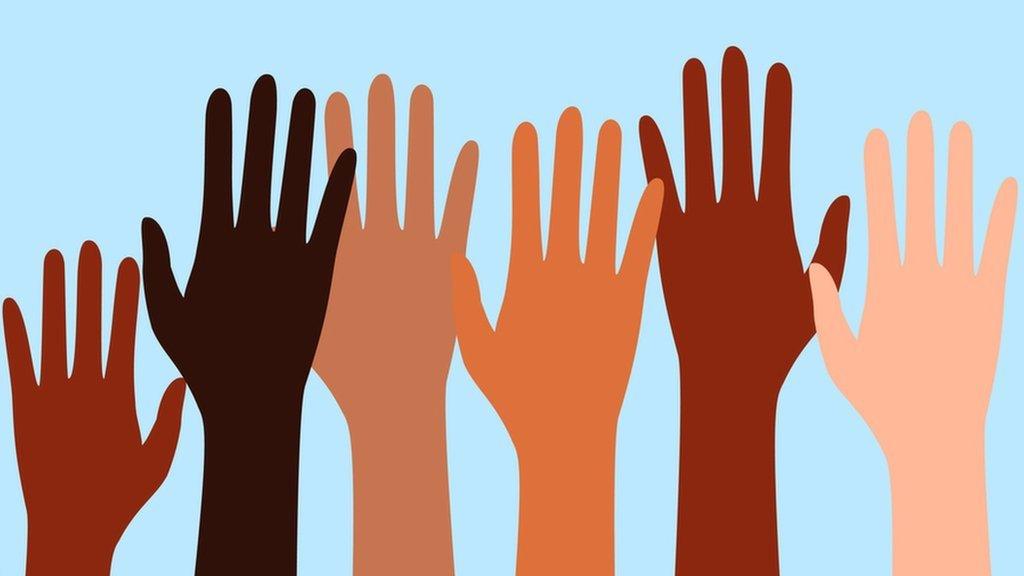George Floyd: A year on from his death what has changed?
- Published
- comments
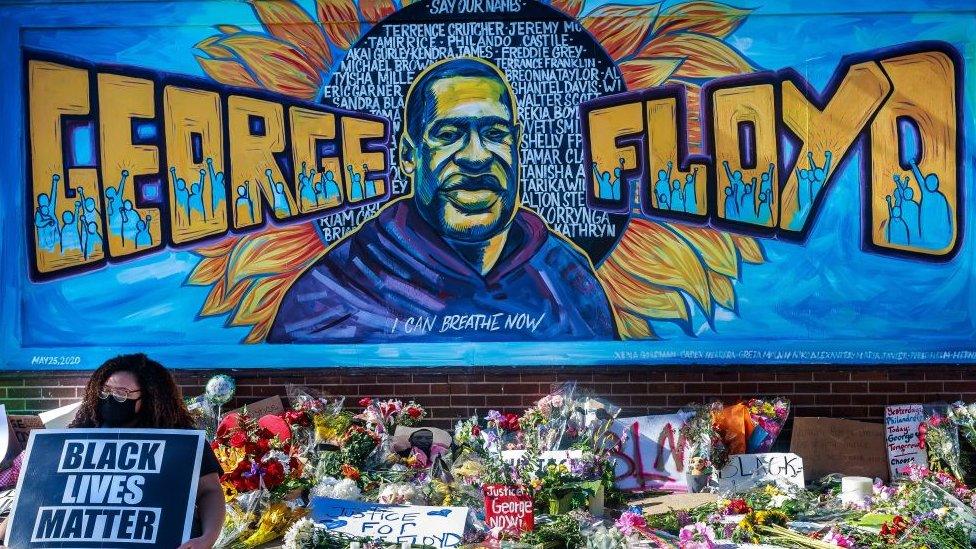
It has been a year since George Floyd was killed in police custody in the US, an event which sparked protests around the world.
He was an unarmed black man who was stopped by police in Minneapolis and died after being held down by a police officer.
The officer involved, Derek Chauvin, lost his job and was later found guilty of George Floyd's murder.
Floyd's death led to lots of debate about racism and inequality and there were big Black Lives Matter marches in lots of countries calling for changes to policing, education and culture.
Newsround looks back at an extraordinary year, to find out how the world has changed.
Policing
George Floyd: A year on what has changed in the USA?
In the US
Since George Floyd's death there have been calls for radical change in the US to tackle police brutality and racism.
President Biden said: "My fellow Americans, we have to come together to rebuild the trust between law enforcement and the people they serve and root out systemic racism in our criminal justice system and enact police reform in George Floyd's name."
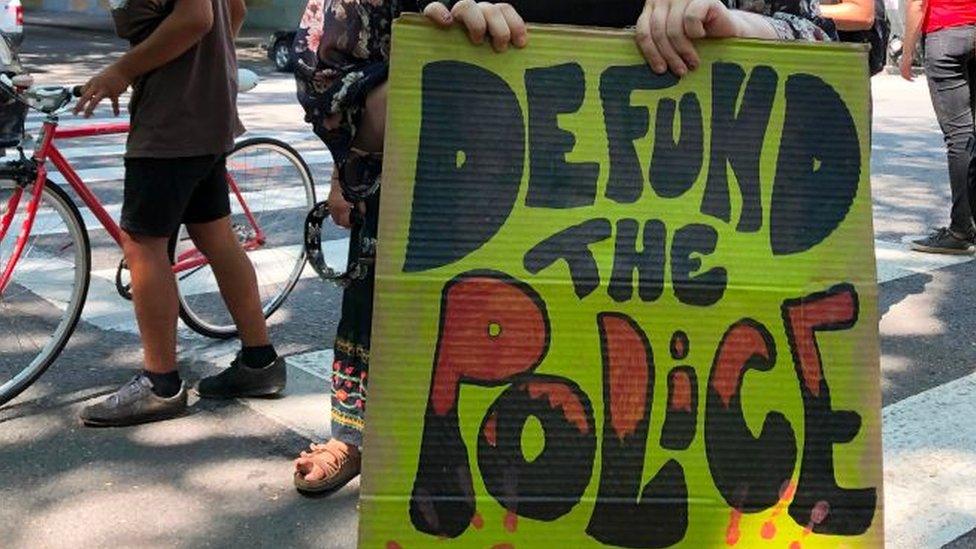
Some people have asked for money to be taken from police forces and given to other organisations. This has been called "defunding" by activists.
This idea is controversial, including within black communities where there are a range of views on how to tackle the issue of racism in the police.
Some people argue defunding the police would make society less safe but others say if money was invested in things like mental health services, education and job programmes there would be less crime.
In Minneapolis, where George Floyd was killed, the city council voted to defund the police but the mayor stopped them from taking the more radical step of replacing the police department.
In Atlanta, where police killed another unarmed black man last year, the city's mayor limited police use of deadly force, but the police haven't been defunded.
In New York City, the mayor has cut hundreds of millions of dollars from the police and promised to give it to youth and social services.
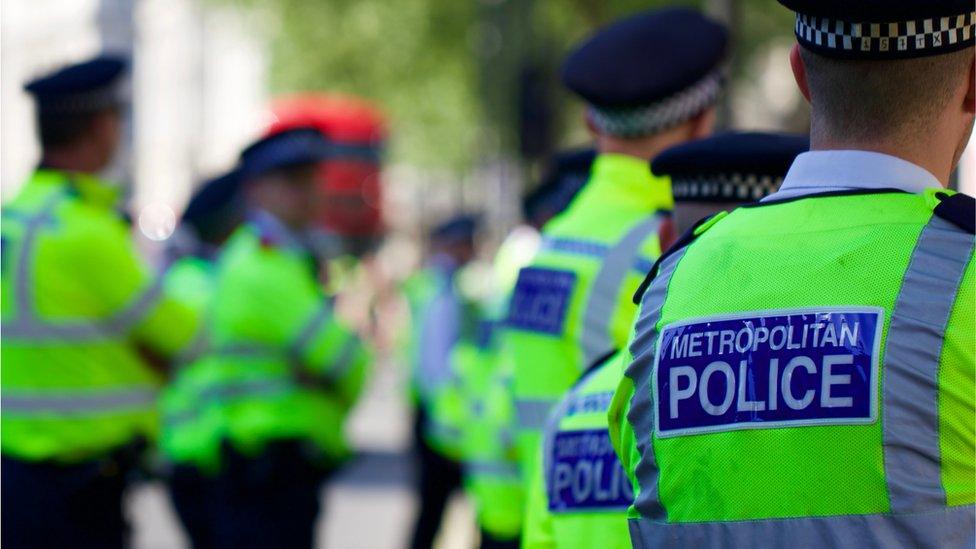
In the UK
There are some big differences between policing in the US and the UK, but campaigners have argued that George Floyd's death has shone a new light on racial issues in UK policing.
Two of the major issues campaigners point to is the proportion of black people who die in police custody, and the way that police officers use "stop and search" powers.
Police officers in the UK have the right to stop people in the street and to search them if they think they might have committed a crime.
But if you are black, you are much more likely to be stopped by police.
George Floyd: Has what happened changed the UK?
According to government figures, for 1,000 white people in England and Wales, there are six stop and searches per year. For 1,000 black people, the figure is 54.
The government reacted to the report by saying more needs to be done to tackle the issue.
Police forces in the UK say they are aiming to change, by building better relationships with ethnic minority communities and hiring more officers from diverse backgrounds.
Prime Minister Boris Johnson has also said: "There are very serious issues that our society faces to do with racism that we need to address, we've got to do more to fix it."
Streets and statues
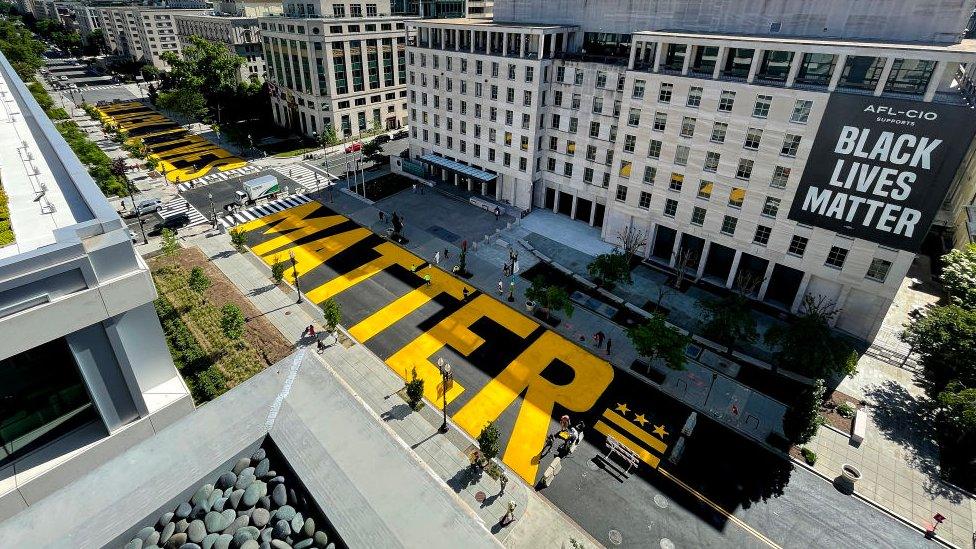
Black Lives Matter Plaza in Washington DC
In the US
The American Civil War ended slavery after the Confederate Army, the side fighting to keep Black slaves, lost to the United States military. However, statues of slave owners and Confederate soldiers have stayed up all over the country until the present day.
In 2020 some of the statues were torn down and the Confederate flag was banned from US Marine bases.
Some schools and streets named after Confederate leaders were also renamed.
There is a Black Lives Matter Plaza in the US capital city, Washington DC. The plaza was renamed by Mayor Muriel Bowser on 5 June, 2020, There is also a Black Lives Matter mural on 5th Avenue in New York. It is one of several that were painted throughout the city to show support for black people after police killed George Floyd.
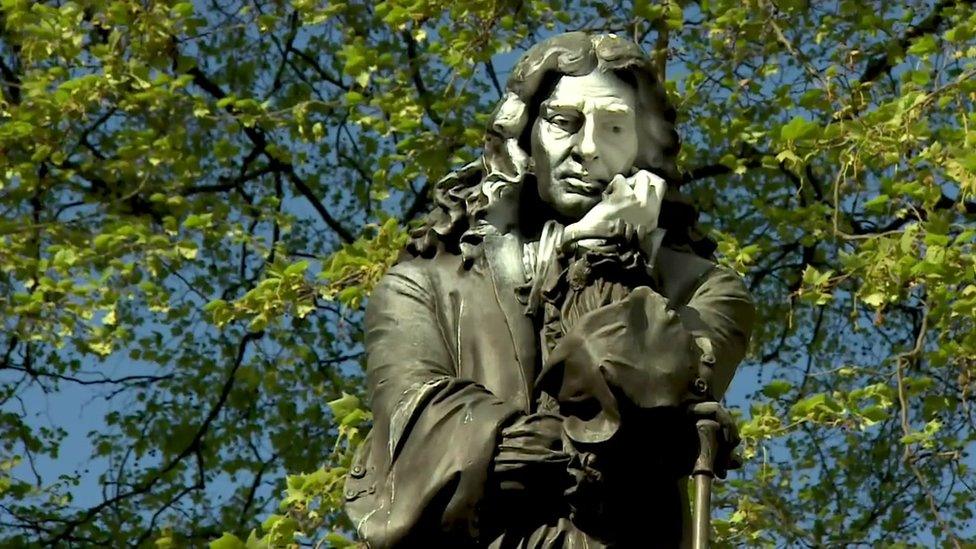
Edward Colston's statue was pulled down by protesters because of his links to the slave trade
In the UK
There have been campaigns to rename some streets and schools because the previous names had links to the slave trade.
Edward Colston was a man who donated lots of money to set up schools and run projects for charity but that money came from slavery.
A school in Bristol is named after Colston but since the protests, students and teachers have voted for it to be renamed and it will now be called Montpelier High School.
There are plans in towns and cities like Glasgow, Watford and Birmingham to make similar changes.
Some people are uncomfortable with changing names that have been around for a long time. They are worried that it's wiping out history.
Education
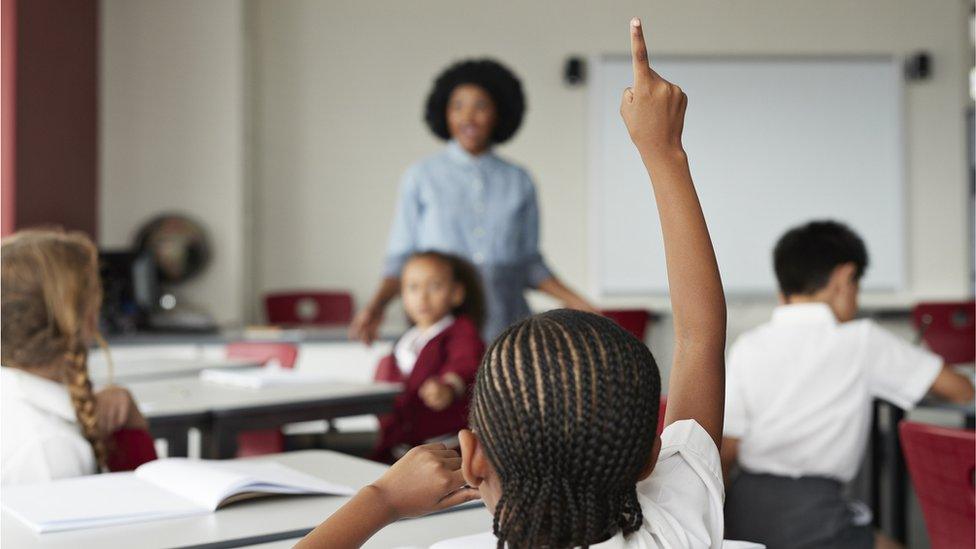
Campaigners say children should learn more about black history in school
Some people also want to see a change in school curriculums, to make them more diverse and to reflect Britain's multicultural society, so that everyone learns about black, Asian and minority ethnic groups throughout history in the same way they are taught about white people.
Some charities and groups like the Black Curriculum believe that it would help to build a sense of identity in every young person in the UK and educate them about racism.
Campaigners say it is important for young people to learn about the valuable contributions black people have made to the UK's history and culture as well as exploring Britain's part in the slave trade.
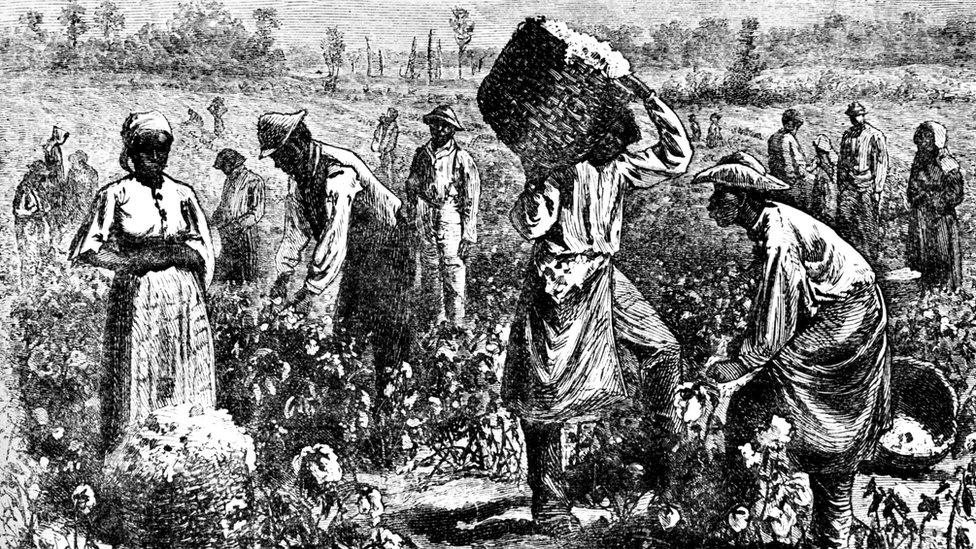
Slaves worked on plantations
Wales has now updated its curriculum so that racism and contributions from black, Asian and minority ethnic groups have to be included at every school.
Scotland has a flexible curriculum which allows teachers to decide what to teach, but in July 2020 Deputy First Minister John Swinney said that Education Scotland was looking at resources to help schools to teach more about Black history and Scotland's role in the slave trade.
He said: "Education has a key role to play in building a society which actively challenges racism, eliminates racial discrimination and advances equality."
In England the curriculum has not changed, but in July 2020 a spokesperson from the government's Department for Education said: "Black history is an important topic which schools can teach to children of all ages as part of the history curriculum."
In Northern Ireland black history is not compulsory in schools.
Culture
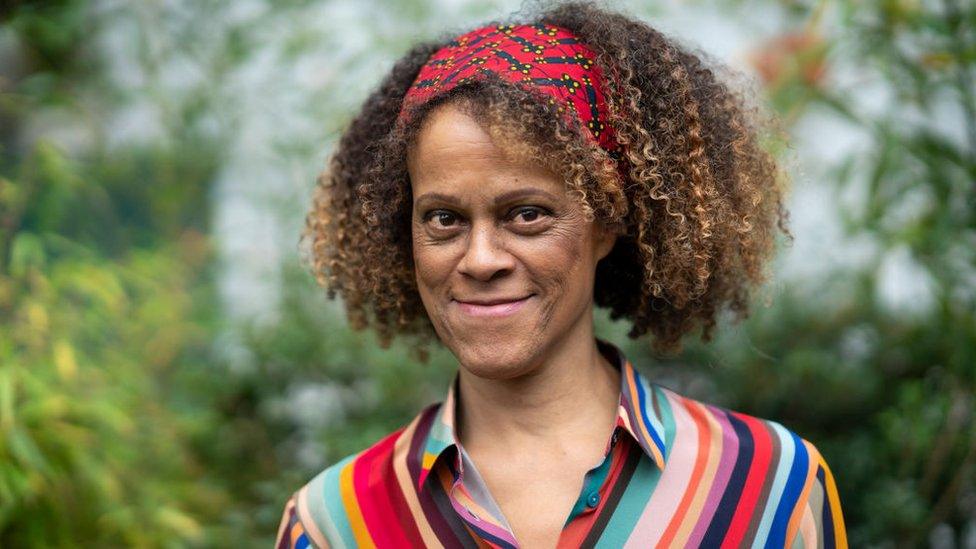
Bernadine Evaristo is a best selling author
Until last year no black person had ever topped the Times paperback fiction best sellers list.
People used social media to campaign for everyone to buy two books from black authors, so readers could learn about black experiences and have more conversations about race.
In 2020 black author Bernadine Evaristo topped that best seller list and won lots of awards.
- Published9 June 2020
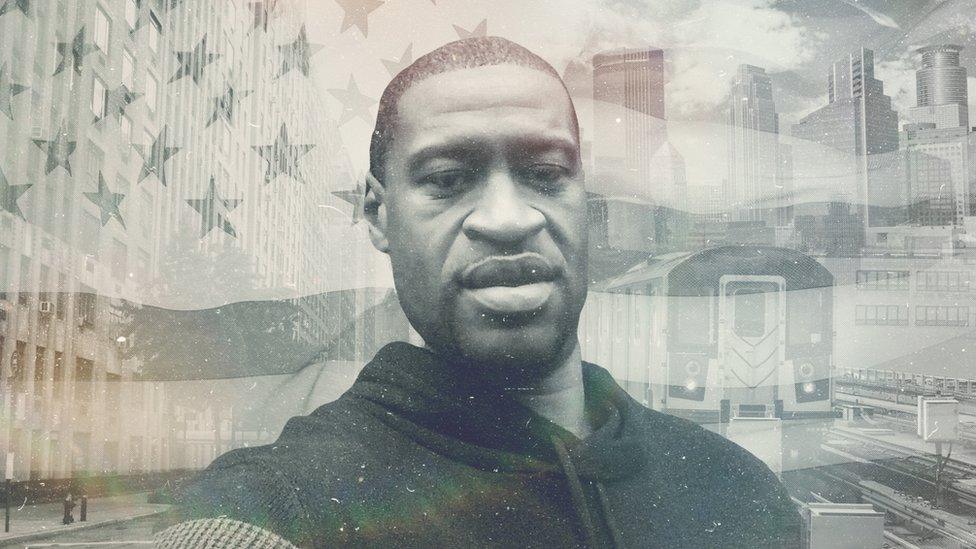
- Published5 June 2020
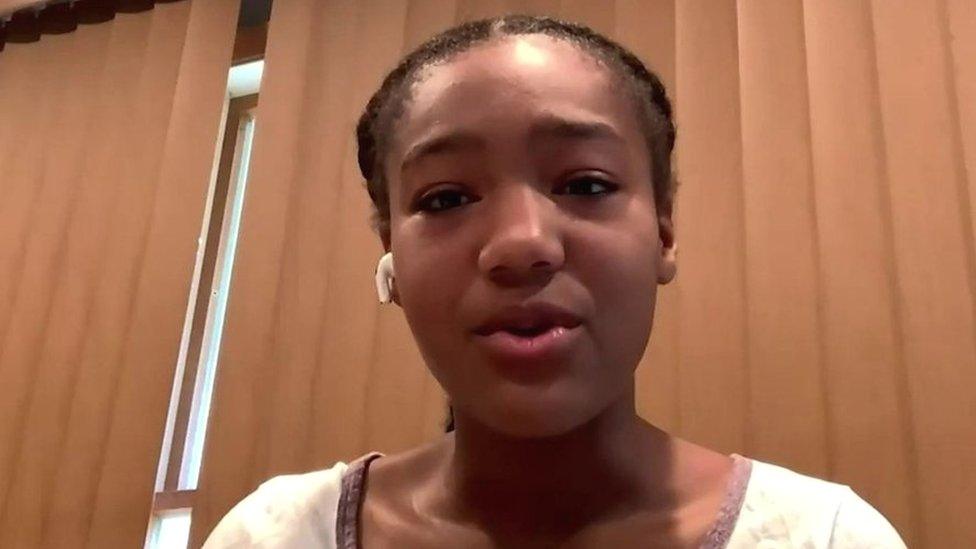
- Published8 June 2020
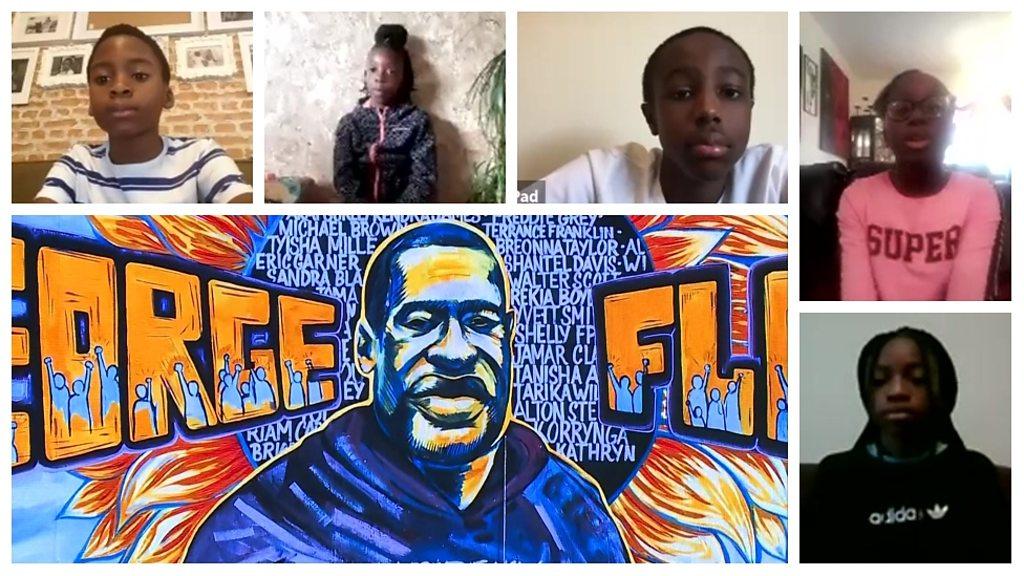
- Published17 June 2020
